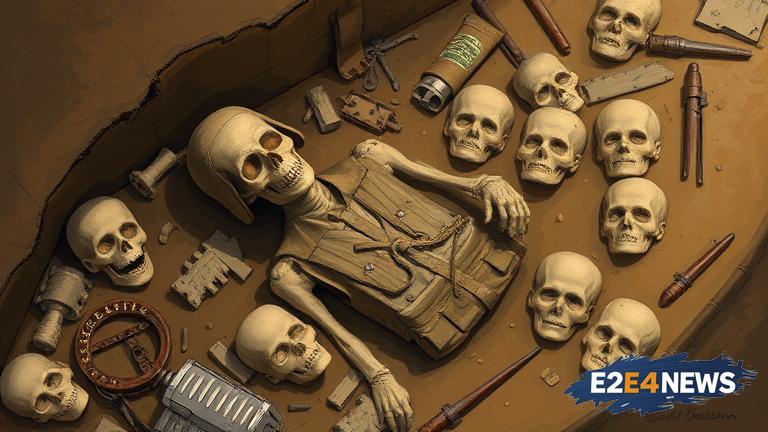The remains of US Army Lieutenant William Bucey, a soldier from Cleveland who died during World War II, have been identified 80 years after his death. Lieutenant Bucey was a prisoner of war in the Philippines when he was forced to participate in the infamous Bataan Death March. The march, which took place in 1942, was a brutal and inhumane forced march of tens of thousands of American and Filipino prisoners of war by the Japanese military. The conditions during the march were harsh, with prisoners being subjected to extreme heat, hunger, and physical abuse. Many prisoners, including Lieutenant Bucey, did not survive the march. For decades, Lieutenant Bucey’s family had been searching for answers about his fate, but it wasn’t until recently that his remains were identified through DNA analysis. The identification was made possible by the efforts of the Defense POW/MIA Accounting Agency, which has been working to identify the remains of American soldiers who died during World War II. The agency used DNA samples from Lieutenant Bucey’s family members to match with the remains, which were found in a cemetery in the Philippines. The identification of Lieutenant Bucey’s remains brings closure to his family, who had been waiting for decades to learn what happened to him. The return of his remains to the United States is a significant event, not only for his family but also for the country, as it highlights the sacrifices made by American soldiers during World War II. The Bataan Death March is considered one of the most infamous atrocities committed during the war, and the identification of Lieutenant Bucey’s remains serves as a reminder of the brutality and inhumanity of the Japanese military during that time. The story of Lieutenant Bucey’s identification is a testament to the dedication and perseverance of the Defense POW/MIA Accounting Agency and the importance of bringing closure to the families of American soldiers who died during World War II. The agency’s efforts have resulted in the identification of hundreds of American soldiers who died during the war, and their work continues to this day. The identification of Lieutenant Bucey’s remains is a significant milestone in the agency’s mission to account for all American soldiers who died during World War II. The return of his remains to the United States will allow his family to finally lay him to rest, and it will also serve as a reminder of the sacrifices made by American soldiers during the war. The story of Lieutenant Bucey’s identification is a powerful reminder of the importance of honoring the memories of American soldiers who died during World War II and ensuring that their sacrifices are never forgotten.





